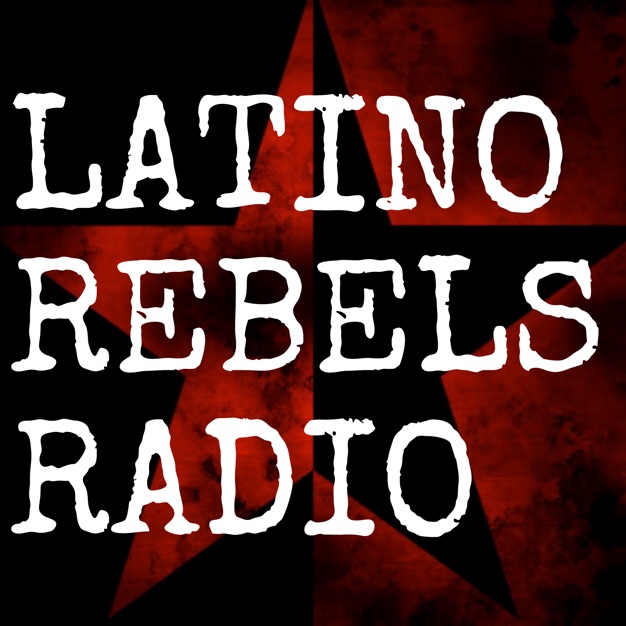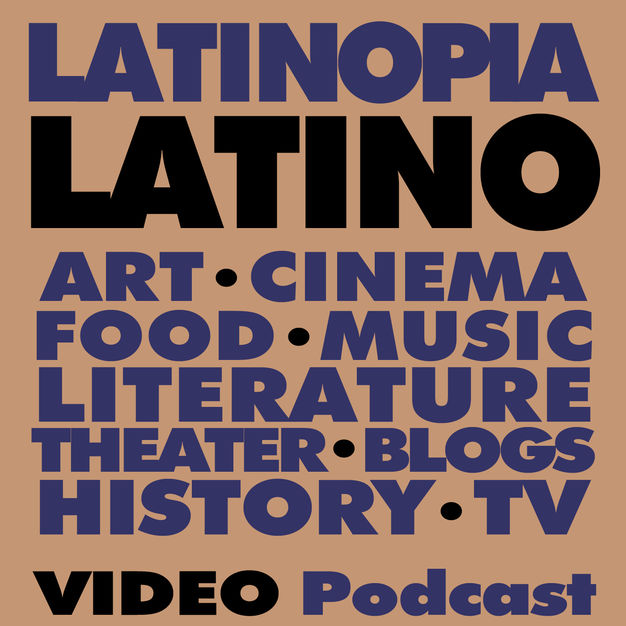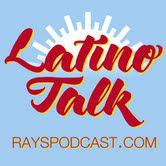
New Books in Latino Studies
Interviews with Scholars of Latino Culture and History about their New Books
- 46 minutes 17 secondsAndrew Gomez, "Constructing Cuban America: Race and Identity in Florida's Caribbean South, 1868–1945" (U Texas Press, 2024)
How Black and white Cubans navigated issues of race, politics, and identity during the post-Civil War and early Jim Crow eras in South Florida.
On July 4, 1876, during the centennial celebration of US independence, the city of Key West was different from other cities. In some of post–Civil War Florida, Black residents were hindered from participating in 4th of July festivities, but Key West's celebration, “led by a Cuban revolutionary mayor working in concert with a city council composed of Afro-Bahamians, Cubans, African Americans, and Anglos,” represented a profound exercise in interracial democracy amid the Radical Reconstruction era.
Constructing Cuban America: Race and Identity in Florida's Caribbean South, 1868–1945 (U Texas Press, 2024) examines the first Cuban American communities in South Florida—Key West and Tampa—and how race played a central role in shaping the experiences of white and Black Cubans. Andrew Gomez argues that factors such as the Cuban independence movement and Radical Reconstruction produced interracial communities of Cubans that worked alongside African Americans and Afro-Bahamians in Florida, yielding several successes in interracial democratic representation, even as they continued to wrestle with elements of racial separatism within the Cuban community. But the conclusion of the Cuban War of Independence and early Jim Crow laws led to a fracture in the Cuban-American community. In the process, both Black and white Cubans posited distinct visions of Cuban-American identity.
Andrew Gomez is an associate professor of history at the University of Puget Sound.
Katie Coldiron is the Outreach Program Manager for the Digital Library of the Caribbean (dLOC) and PhD student in History at Florida International University.
Learn more about your ad choices. Visit megaphone.fm/adchoices
Support our show by becoming a premium member! https://newbooksnetwork.supportingcast.fm/latino-studies
13 January 2025, 9:00 am - 1 hour 7 minutesMike Madrid, "The Latino Century: How America's Largest Minority Is Transforming Democracy" (Simon and Schuster, 2024)
In 2020, Latinos became the second largest ethnic voting group in the country. They make up the largest plurality of residents in the most populous states in the union, as well as the fastest segment of the most important swing states in the US Electoral College. Fitting neither the stereotype of the aggrieved minority voter nor the traditional assimilating immigrant group, Latinos are challenging both political parties' notions of race, religious beliefs, economic success, and the American dream. Given their exploding numbers—and their growing ability to determine the fate of local, state, and national elections—you’d think the two major political parties would understand Latino voters. After all, their emergence on the national scene is not a new phenomenon. But they still don’t.
Republicans, not because of their best efforts but rather despite them, are just beginning to see a movement of Latinos toward the GOP. Democrats, for the moment, still win a commanding share of the Latino vote, but that share is dwindling fast. Now, in The Latino Century: How America's Largest Minority Is Transforming Democracy (Simon and Schuster, 2024), veteran political consultant Mike Madrid uses thirty years of research and campaign experience at some of the highest levels on both sides of the aisle to address what might be the most critical questions of our time: Will the rise of Latino voters continue to foment the hyper-partisan and explosive tribalism of our age or will they usher in a new pluralism that advances the arc of social progress? How and why are both political parties so uniquely unprepared for the coming wave of Latino votes? And what must each party do to win those votes?
By answering these questions, The Latino Century explores the true meaning of America at a time of rapid cultural change, the founding principles of self-government and individual responsibility, and one man’s journey through a political party that has turned itself inside out.
Learn more about your ad choices. Visit megaphone.fm/adchoices
Support our show by becoming a premium member! https://newbooksnetwork.supportingcast.fm/latino-studies
30 December 2024, 9:00 am - 1 hour 10 minutesOliver Rosales, "Civil Rights in Bakersfield: Segregation and Multiracial Activism in the Central Valley" (U Texas Press, 2024)
In Civil Rights in Bakersfield: Segregation and Multiracial Activism in the Central Valley (University of Texas Press, 2024), Oliver Rosales uncovers the role of the multiracial west in shaping the course of US civil rights history. Focusing on Bakersfield, one of the few sizable cities within California’s Central Valley for much of the twentieth century in a region most commonly known as a bastion of political conservatism, oil, and industrial agriculture, Rosales documents how multiracial coalitions emerged to challenge histories of racial segregation and discrimination. He recounts how the region was home to both the historic farm worker movement, led by César Chávez, Dolores Huerta, and Larry Itliong, and also a robust multiracial civil rights movement beyond the fields. This multiracial push for civil rights reform included struggles for fair housing, school integration, public health, media representation, and greater political representation for Black and Brown communities. In expanding on this history of multiracial activism, Rosales further explores the challenges activists faced in community organizing and how the legacies of coalition building contribute to ongoing activist efforts in the Central Valley of today.
*At around 1:07:00, Oliver said Teresa Rodriguez instead of the correct name, Rebecca Flores.
Learn more about your ad choices. Visit megaphone.fm/adchoices
Support our show by becoming a premium member! https://newbooksnetwork.supportingcast.fm/latino-studies
14 December 2024, 9:00 am - 56 minutes 9 secondsAisha M Beliso-de Jesús, "Excited Delirium: Race, Police Violence, and the Invention of a Disease" (Duke UP, 2024)
In 1980, Charles Wetli---a Miami-based medical examiner and self-proclaimed “cult expert” of Afro-Caribbean religions---identified what he called “excited delirium syndrome.” Soon, medical examiners began using the syndrome regularly to describe the deaths of Black men and women during interactions with police. Police and medical examiners claimed that Black people with so-called excited delirium exhibited superhuman strength induced from narcotics abuse. It was fatal heart failure that killed them, examiners said, not forceful police restraints.
In Excited Delirium: Race, Police Violence, and the Invention of a Disease (Duke University Press, 2024), Aisha M. Beliso-De Jesús examines this fabricated medical diagnosis and its use to justify and erase police violence against Black and Brown communities. Exposing excited delirium syndrome’s flawed diagnostic criteria, she outlines its inextricable ties to the criminalization of Afro-Latiné religions. Beliso-De Jesús demonstrates that it is yet a further example of the systemic racism that pervades law enforcement in which the culpability for state violence is shifted from the state onto its victims. In so doing, she furthers understanding of the complex layers of medicalized state-sanctioned violence against people of color in the United States.
Aisha M. Beliso-De Jesús is Olden Street Professor of American Studies at Princeton University and author of Electric Santería: Racial and Sexual Assemblages of Transnational Religion.
Reighan Gillam is Associate Professor in the Department of Latin American, Latino, and Caribbean Studies at Dartmouth College. Her research examines the ways in which Afro-Brazilian media producers foment anti-racist visual politics through their image creation. She is the author of Visualizing Black Lives: Ownership and Control in Afro-Brazilian Media (University of Illinois Press).
Learn more about your ad choices. Visit megaphone.fm/adchoices
Support our show by becoming a premium member! https://newbooksnetwork.supportingcast.fm/latino-studies
10 December 2024, 9:00 am - 1 hour 20 minutesMatthew Gardner Kelly, "Dividing the Public: School Finance and the Creation of Structural Inequity" (Cornell UP, 2024)
In Dividing the Public: School Finance and the Creation of Structural Inequity (Cornell UP, 2024), Matthew Gardner Kelly takes aim at the racial and economic disparities that characterize public education funding in the United States. With California as his focus, Kelly illustrates that the use of local taxes to fund public education was never an inadvertent or de facto product of past practices, but an intentional decision adopted in place of well-known alternatives during the Progressive Era, against past precedent and principle in several states.
From efforts to convert expropriated Indigenous and Mexican land into common school funding in the 1850s, to reforms that directed state aid to expanding white suburbs during the years surrounding World War II, Dividing the Public traces, in intricate detail, how a host of policies connected to school funding have divided California by race and class over time. In bringing into view the neglected and poorly understood history of policymaking connected to school finance, Kelly offers a new story about the role public education played in shaping the racially segregated, economically divided, and politically fragmented world of the post-1945 metropolis.
Matthew Gardner Kelly is an assistant professor of educational foundations, leadership, and policy at the University of Washington.
Max Jacobs is a PhD student in education at Rutgers University.
Learn more about your ad choices. Visit megaphone.fm/adchoices
Support our show by becoming a premium member! https://newbooksnetwork.supportingcast.fm/latino-studies
4 December 2024, 9:00 am - 41 minutes 50 secondsLaura C. Chávez-Moreno, "How Schools Make Race: Teaching Latinx Racialization in America" (Harvard Education Press, 2024)
In How Schools Make Race: Teaching Latinx Racialization in America (Harvard Education Press, 2025), Dr. Laura C. Chávez-Moreno uncovers the process through which schools implicitly and explicitly shape their students’ concept of race and the often unintentional consequences of this on educational equity. Dr.Chávez-Moreno sheds light on how the complex interactions among educational practices, policies, pedagogy, language, and societal ideas interplay to form, reinforce, and blur the boundaries of racialized groups, a dynamic which creates contradictions in classrooms and communities committed to antiracism.
In this provocative book, Dr. Chávez-Moreno urges readers to rethink race, to reconceptualize Latinx as a racialized group, and to pay attention to how schools construct Latinidad (a concept about Latinx experience and identity) in relation to Blackness, Indigeneity, Asianness, and Whiteness. The work explores, as an example, how Spanish-English bilingual education programs engage in race-making work. It also illuminates how schools can offer ambitious teachings to raise their students’ critical consciousness about race and racialization.
Ultimately, Dr. Chávez-Moreno’s groundbreaking work makes clear that understanding how our schools teach about racialized groups is crucial to understanding how our society thinks about race and offers solutions to racial inequities. The book invites educators and scholars to embrace ambitious teaching about the ambivalence of race so that teachers and students are prepared to interrogate racist ideas and act toward just outcomes.
This interview was conducted by Dr. Miranda Melcher whose new book focuses on post-conflict military integration, understanding treaty negotiation and implementation in civil war contexts, with qualitative analysis of the Angolan and Mozambican civil wars.
Learn more about your ad choices. Visit megaphone.fm/adchoices
Support our show by becoming a premium member! https://newbooksnetwork.supportingcast.fm/latino-studies
3 December 2024, 9:00 am - 51 minutes 39 secondsMaria Angela Diaz, "A Continuous State of War: Empire Building and Race Making in the Civil War–Era Gulf South" (U Georgia Press, 2024)
From 1845 to 1865 the Gulf of Mexico was at the center of American expansion and southern imperialism. A Continuous State of War: Empire Building and Race Making in the Civil War–Era Gulf South (University of Georgia Press, 2024) by Dr. Maria Angela Diaz tells the story of several communities, such as Galveston, New Orleans, and Pensacola, as well as countries such as Mexico and Cuba, to uncover the way that wars within the upper rim of the Gulf of Mexico facilitated American and southern attempts to conquer Latin American nations. In the push for westward expansion that preceded the Civil War, white southerners along with other Americans engaged in violent conquest in Latin America and the American West. Through the wars that are chronicled here, white southern concepts of race became more rigidly fixed.
Dr. Maria Angela Diaz covers several conflicts leading up to the Civil War with Mexicans, Cubans, and Native Americans. She places the Civil War within this framework and follows the trajectory of relations with Latin America through the end of the Civil War and ex-Confederates’ attempts to emigrate abroad. Gulf Coast communities facilitated both the physical efforts to seize territory and the construction of the highly racialized imperialist ideas that reimagined Latin America as a region that could secure the South’s future. Yet the pursuit of that territory created a fluctuating and uncertain situation that shaped the choices of the diverse peoples who lived along the upper rim of the Gulf of Mexico in ways they did not expect.
This interview was conducted by Dr. Miranda Melcher whose new book focuses on post-conflict military integration, understanding treaty negotiation and implementation in civil war contexts, with qualitative analysis of the Angolan and Mozambican civil wars.
Learn more about your ad choices. Visit megaphone.fm/adchoices
Support our show by becoming a premium member! https://newbooksnetwork.supportingcast.fm/latino-studies
30 November 2024, 9:00 am - 1 hour 9 minutesDisabled Ecologies: Lessons From a Wounded Desert
Deep below the ground in Tucson, Arizona, lies an aquifer forever altered by the detritus of a postwar Superfund site. Disabled Ecologies: Lessons From a Wounded Desert (U California Press, 2024) by Dr. Sunaura Taylor, tells the story of this contamination and its ripple effects through the largely Mexican-American community living above. Drawing on her own complex relationship to this long-ago injured landscape, Dr. Taylor takes us with her to follow the site's disabled ecology—the networks of disability, both human and wild, that are created when ecosystems are corrupted and profoundly altered. What Taylor finds is a story of entanglements that reach far beyond the Sonoran Desert. These stories tell of debilitating and sometimes life-ending injuries, but they also map out alternative modes of connection, solidarity, and resistance—an environmentalism of the injured. An original and deeply personal reflection on what disability means in an era of increasing multispecies disablement, Disabled Ecologies is a powerful call to reflect on the kinds of care, treatment, and assistance this age of disability requires.
Our guest is: Dr. Sunaura Taylor, who is Assistant Professor of Environmental Science, Policy, and Management at the University of California, Berkeley, and author of the American Book Award–winning Beasts of Burden: Animal and Disability Liberation.
Our host is: Dr. Christina Gessler, the producer of the Academic Life podcast. She holds a PhD in history, which she uses to explore what stories we tell and what happens to those we never tell.
Playlist for listeners:
- A conversation about Sitting Pretty
- Pandemic Perspectives
- The Killer Whale Journals
- The Well-Gardened Mind
- Endless Forms
Welcome to Academic Life, the podcast for your academic journey—and beyond! You can support the show by posting, assigning or sharing episodes. Join us again to learn from more experts inside and outside the academy, and around the world. Missed any of the 225+ Academic Life episodes? You’ll find them all archived here.
Learn more about your ad choices. Visit megaphone.fm/adchoices
Support our show by becoming a premium member! https://newbooksnetwork.supportingcast.fm/latino-studies
27 November 2024, 9:00 am - 45 minutes 27 secondsWithout Parents or Papers: A Discussion with Stephanie L. Canizales
Today’s book is: Sin Padres, Ni Papeles: Unaccompanied Migrant Youth Coming of Age in the United States (U California Press, 2024), a which explores how each year, thousands of youth endure harrowing unaccompanied and undocumented migrations across Central America and Mexico to the United States in pursuit of a better future. Drawing on the firsthand narratives of migrant youth in Los Angeles, California, Dr. Stephanie L. Canizales shows that while a lucky few do find reprieve, many are met by resource-impoverished relatives who are unable to support them, exploitative jobs that are no match for the high cost of living, and individualistic social norms that render them independent and alone. Sin Padres, Ni Papeles illuminates how unaccompanied teens who grow up as undocumented low-wage workers navigate unthinkable material and emotional hardship, find the agency and hope that is required to survive, and discover what it means to be successful during the transition to adulthood in the United States.
Our guest is: Dr. Stephanie L. Canizales, who is a researcher, author, and professor at the University of California, Berkeley, and the Faculty Director of the Berkeley Interdisciplinary Migration Initiative. She specializes in the study of international migration and immigrant integration, with particular interest in the experiences of Latin American migrants in the United States. Throughout her research and writing, Stephanie explores the role of immigration policy in shaping the everyday lives of migrant children and their families, how immigrants and the communities they arrive to (re)make one another mutually, and the meanings immigrants make of success and wellbeing within an increasingly unequal US society. She is the author of Sin Padres, Ni Papeles.
Our host is: Dr. Christina Gessler, the producer of the Academic Life podcast. She holds a PhD in history, which she uses to explore what stories we tell and what happens to those we never tell.
Playlist for listeners:
Welcome to Academic Life, the podcast for your academic journey—and beyond! You can support the show by posting, assigning or sharing episodes. Join us again to learn from more experts inside and outside the academy, and around the world. Missed any of the 225+ Academic Life episodes? You’ll find them all archived here.
Learn more about your ad choices. Visit megaphone.fm/adchoices
Support our show by becoming a premium member! https://newbooksnetwork.supportingcast.fm/latino-studies
21 November 2024, 9:00 am - 37 minutes 48 secondsChristopher Bell, "Walking East Harlem: A Neighborhood Experience" (Rutgers UP, 2024)
They call it Spanish Harlem or sometimes just El Barrio. But for over a century, East Harlem has been a melting pot of many ethnic groups, including Puerto Rican, Dominican, Cuban, and Mexican immigrants, as well as Italian, Jewish, and African American communities. Though gentrification is rapidly changing the face of this section of upper Manhattan, it is still full of sites that attest to its rich cultural heritage.
Now East Harlem native Christopher Bell takes you on a tour of his beloved neighborhood. He takes you on three separate walking tours, each visiting a different part of East Harlem and each full of stories about its theaters, museums, art spaces, schools, community centers, churches, mosques, and synagogues. You'll also learn about the famous people who lived in El Barrio, such as actress Cecily Tyson, opera singer Marian Anderson, portrait artist Alice Neel, incomparable poet Julia De Burgos, and King of Latin Music Tito Puente.
Lavishly illustrated with over fifty photos, Walking East Harlem: A Neighborhood Experience (Rutgers University Press, 2024) points out not only the many architectural and cultural landmarks in the neighborhood but also the historical buildings that have since been demolished. Whether you are a tourist or a resident, this guide will give you a new appreciation for El Barrio's exciting history, cultural diversity, and continued artistic vibrancy.
Learn more about your ad choices. Visit megaphone.fm/adchoices
Support our show by becoming a premium member! https://newbooksnetwork.supportingcast.fm/latino-studies
20 November 2024, 9:00 am - 50 minutes 8 secondsDomingo Morel, "Developing Scholars: Race, Politics, and the Pursuit of Higher Education" (Oxford UP, 2023)
Over the past fifty years, debates concerning race and college admissions have focused primarily on the policy of affirmative action at elite institutions of higher education. But a less well-known approach to affirmative action also emerged in the 1960s in response to urban unrest and Black and Latino political mobilization. The programs that emerged in response to community demands offered a more radical view of college access: admitting and supporting students who do not meet regular admissions requirements and come from families who are unable to afford college tuition, fees, and other expenses. While conventional views of affirmative action policies focus on the "identification" of high-achieving students of color to attend elite institutions of higher education, these programs represent a community-centered approach to affirmative action. This approach is based on a logic of developing scholars who can be supported at their local public institutions of higher education.
In Developing Scholars: Race, Politics, and the Pursuit of Higher Education (Oxford UP, 2023), Domingo Morel explores the history and political factors that led to the creation of college access programs for students of color in the 1960s. Through a case study of an existing community-centered affirmative action program, Talent Development, Morel shows how protest, including violent protest, has been instrumental in the maintenance of college access programs. He also reveals that in response to the college expansion efforts of the 1960s, hidden forms of restriction emerged that have significantly impacted students of color. Developing Scholars argues that the origin, history, and purpose of these programs reveal gaps in our understanding of college access expansion in the US that challenge conventional wisdom of American politics.
Learn more about your ad choices. Visit megaphone.fm/adchoices
Support our show by becoming a premium member! https://newbooksnetwork.supportingcast.fm/latino-studies
19 November 2024, 9:00 am - More Episodes? Get the App
Your feedback is valuable to us. Should you encounter any bugs, glitches, lack of functionality or other problems, please email us on [email protected] or join Moon.FM Telegram Group where you can talk directly to the dev team who are happy to answer any queries.
 Latino Rebels Radio
Latino Rebels Radio
 Chicana Motherwork
Chicana Motherwork
 ChicanoCast
ChicanoCast
 Latinopia.com - Latino Arts, History, Culture & Entertainment
Latinopia.com - Latino Arts, History, Culture & Entertainment
 Rays Latino Talk Podcast
Rays Latino Talk Podcast